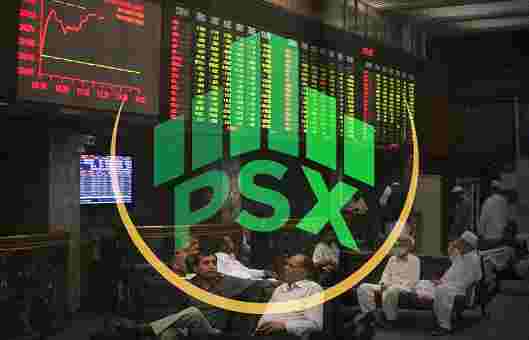Karachi, June 21, 2025 – The benchmark KSE-100 index of the Pakistan Stock Exchange (PSX) recorded a sharp weekly decline of 1.74%, primarily driven by global uncertainty stemming from escalating tensions between Iran and Israel.
The geopolitical conflict dampened investor sentiment across regional markets, including Pakistan, leading to subdued activity and a risk-off attitude among traders.
Analysts at Topline Securities attributed the downturn in the KSE-100 index to the broader financial market anxiety caused by the Iran-Israel standoff, which has heightened volatility in global commodities, currencies, and equity markets. The weekly closing of the index reflected cautious trading behavior, with most investors opting to minimize exposure amid fears of potential escalation.
Apart from international developments, several domestic economic factors also influenced the index’s weekly performance. On Monday, the State Bank of Pakistan (SBP), during its Monetary Policy Committee (MPC) meeting, decided to keep the benchmark policy rate unchanged at 11%. While the decision was largely in line with market expectations, it failed to uplift investor morale in the face of external geopolitical risks.
Additionally, Pakistan’s Current Account for May 2025 showed a deficit of $103 million, reversing the surplus of $47 million recorded in April. The data signaled renewed pressure on the country’s external sector, further contributing to the index’s subdued weekly trend.
In a more positive development, the federal cabinet approved a landmark financial restructuring plan aimed at reducing Rs1.275 trillion of circular debt in the power sector over the next six years. This structural reform was seen as a potential long-term booster for the economy but failed to provide immediate relief to the KSE-100 index.
Moreover, the government signed a $1 billion Syndicated Term Finance Facility (STFC) with commercial banks, backed by the Asian Development Bank (ADB), which may enhance liquidity in the coming months.
Despite these significant economic updates, trading activity remained lukewarm. The weekly average daily traded volume stood at 822 million shares, while average traded value was reported at Rs22 billion, reflecting cautious participation by market players amid persistent regional uncertainty.
Market watchers believe that the KSE-100 index will likely remain range-bound in the short term unless geopolitical tensions ease and macroeconomic indicators show sustained improvement.
